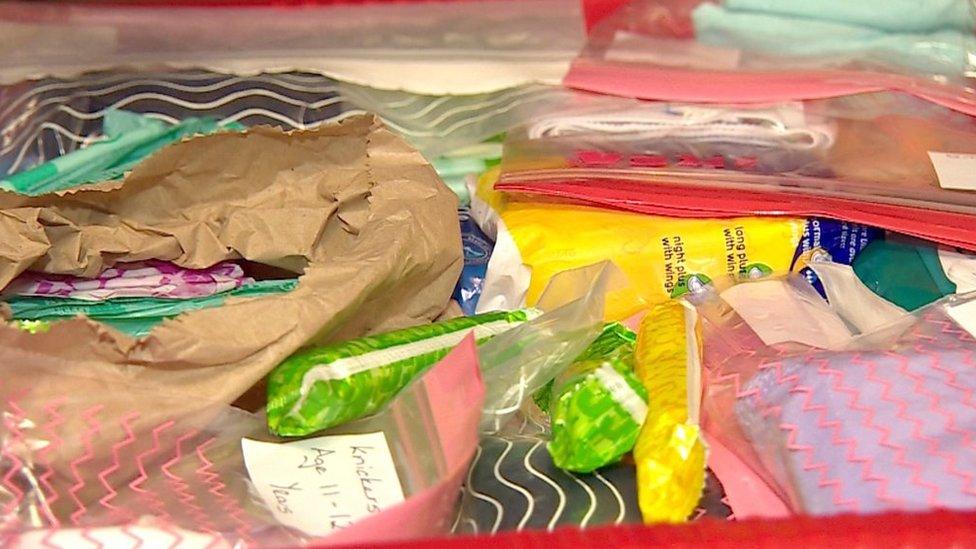Period poverty: Free sanitary products for schools is 'huge step'
- Published

Amika George started campaigning on period poverty when she was 17 years old
Government funding for free sanitary products in all English secondary schools and colleges has been welcomed as a "huge step" by campaigners.
Amika George, 19, who started campaigning on period poverty two years ago, said the move would make a "massive difference" to girls who struggled to afford tampons and pads.
But campaigners said it should also include primary schools.
Chancellor Philip Hammond made the announcement in his Spring Statement.
He said the government was responding to concerns from head teachers that some girls were missing school because they could not afford sanitary products.
One in 10 girls between the ages of 14 and 21 in the UK have been unable to afford sanitary products, while 49% have missed an entire day of school because of their period, according to research by Plan International, external.
The Treasury said the Department for Education would now develop a similar scheme for England.
Ms George, now a student at Cambridge University, was inspired to start campaigning on the issue after reading about period poverty in the news.
She said she was "shocked" to find out girls were missing school because of not having sanitary products.
"I was still at school myself at the time and I couldn't imagine having to deal with that," she said.
In 2017 she started a petition calling for the government to fund free sanitary products in schools, using social media to build support for her campaign.
Just a few months later she organised a protest outside Downing Street which attracted around 2,000 people.
In January this year she launched a legal campaign, external alongside the Red Box Project, external and The Pink Protest, external, arguing that period poverty was denying some girls their right to an education.
Reacting to the funding announcement Ms George said it was an "amazing first step" and the government had "finally taken action against period poverty".
However she said the scheme should also be available in primary schools, as some children can start menstruating as young as eight, and it should be enshrined in law to ensure future governments had a legal obligation to maintain the commitment.

Amika George helped organise a protest of 2,000 people against period poverty
Gemma Abbott, from the Red Box Project, which provides free sanitary products to schools across the country, agreed the announcement was a "huge step forward" and "long overdue".
Ms Abbott said her organisation had been contacted by hundreds of schools asking for help to provide products for their students.
Many schools relied on individual teachers to provide tampons and sanitary pads or even charged pupils because they did not have the funds to give them out for free, she said.
"Schools do their best but it's really important we relieve them of this burden," she added.
She said some girls were forced to use toilet roll, newspaper or socks because they could not pay for sanitary products.
"The experience of being unable to access these products can affect a child's ability to reach their potential," she said.
"Who is going to be able to concentrate properly in lessons if you are worrying about leaking or spending your lunch money on sanitary products?"
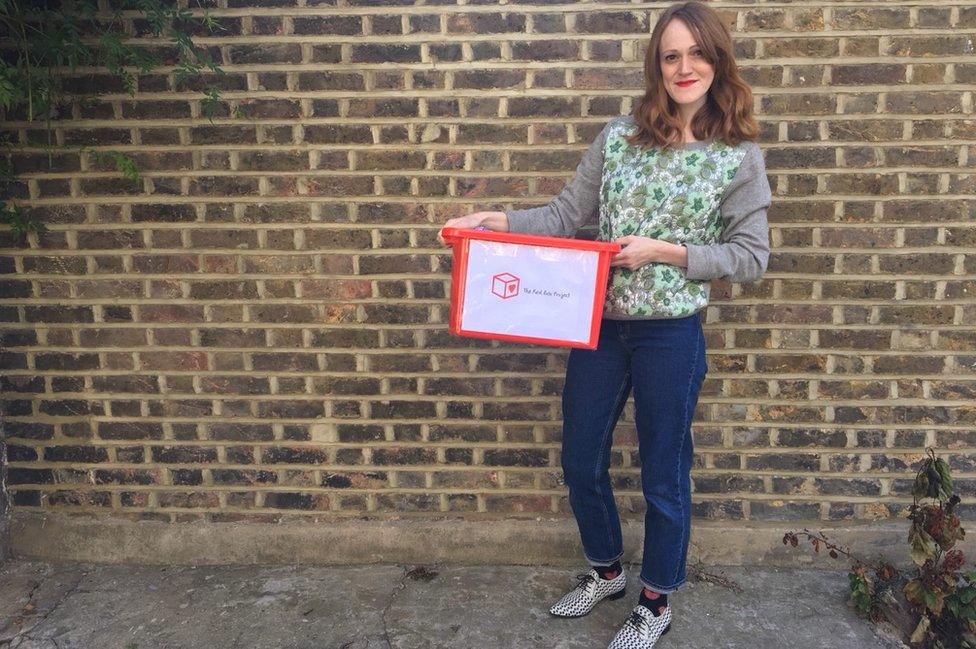
Gemma Abbot said the announcement was "long overdue"
Ms George said she hoped her campaign had also helped tackle the stigma around periods.
"Part of the reason period poverty hasn't been addressed is because of the taboo around the subject," she said.
"But now so many more people are talking about it - it's almost like there's a period revolution happening at the moment."
She said the campaign also showed the impact young people could have.
"I was literally 17 years old, doing it from my laptop in my bedroom," she said.
"I think it's testament to the fact that politics is really changing at the moment.
"Young people don't have to rely on MPs to start campaigns, they can do it themselves using social media."
- Published24 August 2018
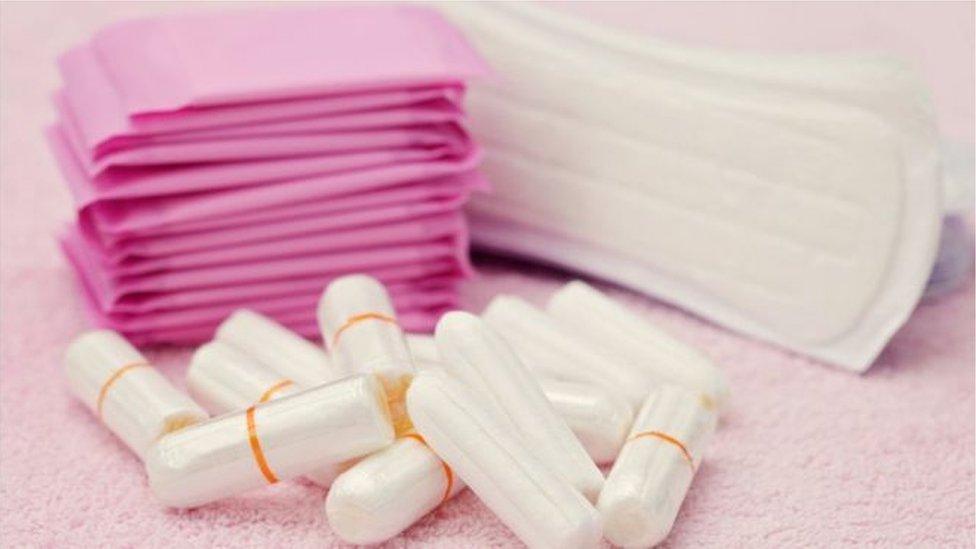
- Published20 December 2017
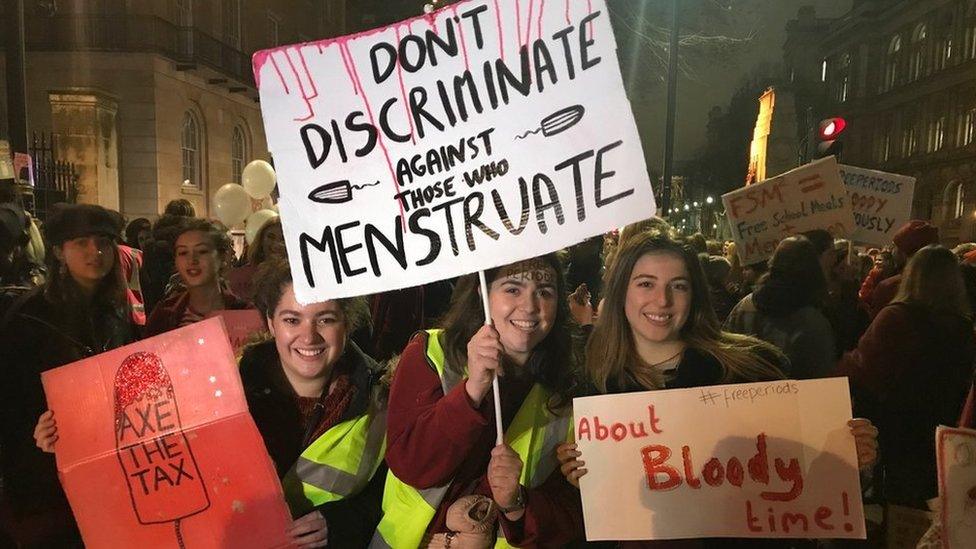
- Published13 October 2017
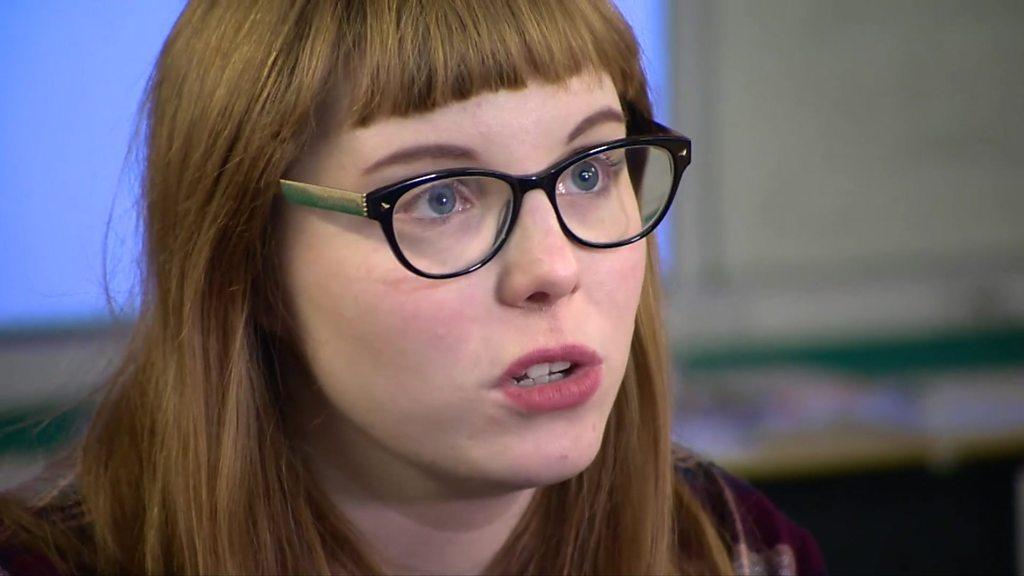
- Published28 November 2018
